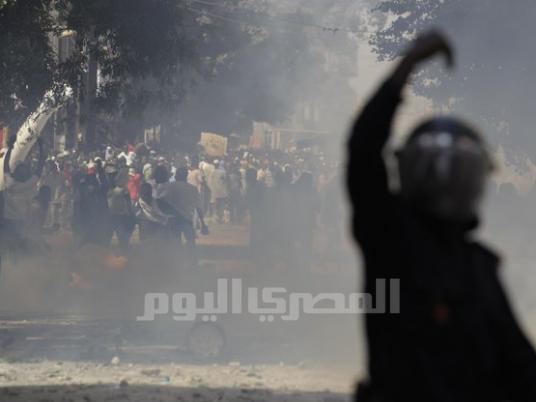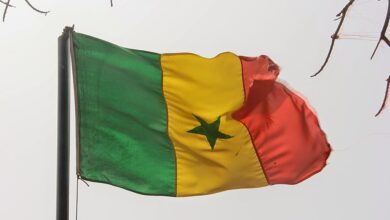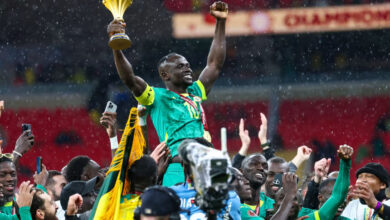
DAKAR, Senegal — When he sat down with his biographer to record the story of his life, President Abdoulaye Wade made sure the book would start with a description of the Waalo kingdom, from whose kings the Wade family is descended.
He wanted to trace his lineage 900 years back to the chiefs that controlled the northern corner of Senegal to make clear his country's democratic credentials, and his family's place in that tradition. For unlike elsewhere on the continent where chiefdoms were passed from father to son, the Waalo kings held elections.
The 85-year-old Wade is himself up for re-election in Sunday's presidential race, and what is on the line is the very tradition of democracy that has long set Senegal apart from other countries in Africa.
Despite his age, Wade is running for a third term in contradiction of the term limits he himself introduced into the constitution.
This normally serene capital has been blanketed in tear gas ever since the country's highest court ruled that Wade could be a candidate.
His party is accused of buying off the country's institutions including the judge who heads the court and whose salary was just increased to US$10,000 a month, according to the court's spokesperson. The pages of Senegalese newspapers are filled with stories alleging how much money has been distributed to village chiefs, religious leaders and government officials ahead of the poll in order to ensure Wade's victory.
It's an uncomfortable spot for Senegal to be in, a country of 12 million that has long been held up as the exception to the continent's checkered history of coups, rigged elections and authoritarian rule.
"For many years, we all wrote and spoke about Senegal as being different," said Chris Fomunyoh, a senior associate at the National Democratic Institute for International Affairs in Washington. "Now I think President Wade has deprived us of being able to use that phrase anymore. All of the ills that are undermining the continent are playing out in Senegal."
The son of an illiterate peanut wholesaler, Wade went on to earn at least eight degrees from French universities before founding the country's first opposition party in 1974.
Over the next 25 years, he ran and lost four times, before winning the 2000 election and ending the 40-year rule of the socialist party. It marked the first peaceful transfer of power in the region, another notch in the belt of Senegal's exceptionalism.
While most of its neighbors only began experimenting with democracy after independence in 1960, Senegal has held elections since the mid-1800s when France allowed citizens in this former colony to elect a deputy to the French parliament.
And long before that in the northern plains of the country where the Waalo kingdom was founded in 1186, communities began to choose their leaders.
The Waalo kingdom was far from a democracy since only certain people were allowed to vote, but historians say these distant practices prepared the political soil and made it easier for democracy to take root.
"What Wade is trying to do is completely contrary to the history of Senegal," says Ibrahima Thioub, chair of the history department at Senegal's largest university. "Everyone is frustrated by his attitude. If he were to leave now after two terms, we would build a monument to him. Instead, he's in the process of burying his own memory — and the history of our country."
Wade argues that he has the right to run for a third term, because he was elected on the basis of the previous constitution, which did not have term limits. As tension has risen, he recently told local journalists that were he to win the election, he might consider stepping down after three years instead of serving the full seven-year term.
Olusegun Obasanjo, Nigeria's former president who arrived in Senegal last week to mediate a solution to the political standoff, proposed late Saturday that Wade step down after two years. His news conference late Saturday was interrupted by anti-Wade protesters who screamed out, "Leave our country Mr. Obasanjo. We will never accept it."
The question for many is what happened to the former opposition leader, once seen as a bright hope for Africa?
Former US Ambassador to Senegal Hank Cohen remembers him as an idealist who wanted to do good for his country. In the 1970s, he used to have Wade over for dinner and the opposition leader regaled the table with his ambitious projects for the country, a fountain of ideas.
Even his critics acknowledge that Wade undertook the biggest building boom in the country's history. The health sector is a case in point. Since he took office 12 years ago, the number of public hospitals went from 17 to 35, the number of doctors from 350 to 1016, and the cost of dialysis treatment dropped from $100 to $20 per session, according to government figures.
Nearly every economic indicator in the country has improved, from literacy which grew from 39 to 50 percent, to the average life span which increased from 56 to 59 years.
Still, half the population still lives in poverty. And the government's many accomplishments have been overshadowed by the growing corruption surrounding the ruling party.
French journalist Gilles Delafon was hired by the president to write his biography and in 2007, he spent three days interviewing Wade in his beach house on the Senegalese coast. He found a man who on the one hand spent his life fighting for the ideals of democracy, but on the other considered Libya's Muammar Qadhafi a good friend and has given so much power to his eldest son that diplomatic cables say Wade may be planning a father-to-son succession.
"He's a paradox. He built his career around the idea of being the legitimate democratic opponent. And yet here he is after he finally arrived, nullifying everything he spent years fighting for," Delafon said by telephone from France.
"My answer to this is that you need to understand that the software in his head, his mode of thinking is that of the postcolonial period. He's more than 80 years old and he built his sense of self when the great leaders of the world were described as 'illuminated despots.' … In the end, he's more like the village chief under the baobab tree giving orders, than the modern man we thought him to be. … And in the evening of his life, this paradox is about to explode in people's faces."




